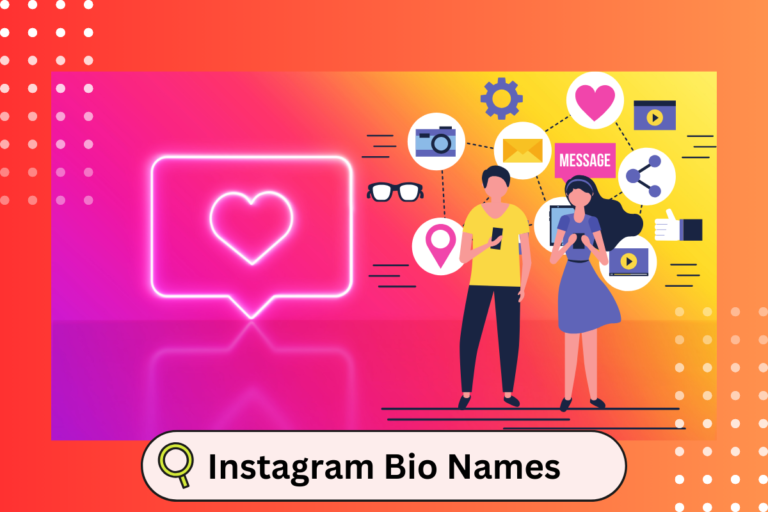A Glimpse to On-Page and Off-Page SEO
Search engine optimization (SEO) is an important part of any digital marketing strategy. It’s the process of optimizing a website for higher rankings in search engines, such as Google and Bing. SEO can be broken down into two main categories: off-page and on-page SEO.
If you’re looking to try your hand at SEO, you’ll quickly learn that there’s a lot more to it than just adding keywords. To get an understanding of the bigger picture, it helps to know the difference between on page and off page SEO.
In this blog post, we’ll break down what each one is and how they work together to help your website rank higher in search engine results pages (SERPs). Let’s jump right in!
What is On-Page SEO?
On-page SEO is all about optimizing the elements of your web pages to make them more visible and attractive to search engines. This includes things like writing keyword-rich content, improving page titles and descriptions for better search engine results, optimizing images for quicker loading times, and making sure that your website is mobile-friendly.
All of these components help search engines understand what a webpage is about so they can show it to relevant users. A few examples of on-page SEO include using targeted keywords in titles and headings.
Writing engaging content; optimizing image file names; using descriptive alt text for images, and structuring your content with subheadings. This process is all aimed at enabling your website to appear higher in the search engine results pages when a user searches for certain terms related to the content on your website.
On-page, SEO can help your website get more visitors from search engines which can lead to more conversions or sales. When done properly On Page SEO can give you a strong online presence which drives more customers to your business ultimately resulting in greater profits.
So, if you want your web pages to appear more visible and attractive to search engine results, on-page SEO should be at the top of your priority list.
On-Page SEO Factors
On-page SEO is all about making sure that your website contents, titles, and tags are optimized for search engine results pages (SERPs). From writing engaging titles on each page to installing on-site analytics and creating a mobile-friendly version of your site.
On-page SEO factors can have a huge impact on how well you rank on SERPs. Examples of on-page SEO elements include using the right title tags on each page which should include important keywords that make it easy to determine what a web page is about as well as including internal links throughout a site.
It helps users navigate easily between related pages. It’s also important to think about on-page versus off-page SEO. On-page activities will certainly help improve your SERP rankings, off-page activities such as guest blogging and link building will further boost them.
What is Off-Page SEO?
Off-page, SEO refers to optimization techniques outside of the actual webpage itself. Off-page SEO includes strategies that are used on your website to help improve its visibility and authority.
Examples of off-page SEO tactics include building backlinks from other websites, promoting content on social media, guest blogging, and submitting content to online directories.
off-page SEO deals with factors outside the direct control of website owners, such as website links from other Authority sites pointing back to their own.
Off-page, SEO is important in developing the “trust ranking” of a website in Google’s algorithm by showing that others have faith in the content generated by it. Essentially, off-page SEO works to increase the authority of your website so that it appears higher up in SERPs.
Examples of off-page optimization include getting backlinks from authority websites; creating content for external websites that link back to yours; participating in conversations on social media platforms; and sharing or promoting your content through influencers or bloggers.
Off-Page SEO Factors
Off-page SEO is a critical element of on-page and off-page SEO efforts needed to keep your online presence on the first page of search engine page rankings. Optimizing for on-page factors such as meta tags, content optimization, and website structure is essential.
You should also focus on off-page factors such as link-building strategies, mobile device optimization, and local SEO. Creative strategies such as press releases, guest blogging on relevant websites, and responding to customer feedback on review sites are all great ways for businesses to amplify their message and establish credibility on the web.
Difference Between On-Page and Off-Page SEO
On-Page SEO is the art of optimizing a web page to make it highly visible and relevant to search engines. This involves rearranging the titles, headings, content, images, and meta tags so they are optimized to draw the attention of search engine spiders.
On-Page SEO also includes providing unique meta descriptions, linking within your website, using keywords in strategic locations, setting up redirects correctly, and compressing images to improve loading times.
On the other hand, Off Page SEO revolves around activities like link building which helps increase your web pages’ rankings on search engines like Google as well as improving visibility within search results.
It is also important for Off Page SEO practices to include activities like social media marketing, blog commenting, and content marketing. With On-Page SEO and Off-Page SEO combined into a strategic approach for optimizing your website for the highest performance with leading search engines.
You can achieve higher organic rankings and increase traffic from potential customers. Summing up, On-Page optimization is critical for a great user experience while Off-Page deals with building trust in a website’s credibility over time.
Conclusion
Both off-page and on-page SEO are essential components to creating an effective online presence. Without a properly optimized website, you’ll be missing out on valuable traffic that could help drive conversions and sales.
By focusing on off-page and on-page SEO tactics, you can optimize your website for higher rankings in the search engines and get more visibility for your business. For the best search engine ranking results, it’s important to create an SEO strategy that includes both off-page and on-page components.
If you’re looking for help with off-page and on-page SEO, consider working with an experienced digital marketing agency. They can help you develop a comprehensive SEO plan that will drive more traffic, leads, and sales for your business.
By knowing how both types of optimization techniques work together, you’ll be able to create an effective strategy for increasing traffic and improving rankings—and that’s a win-win!
Frequently Asked Questions
1. Which is better on-page SEO or off-page SEO?
On-page SEO and off-page SEO are essential components of digital marketing that can improve your website’s ranking in search engine results. On-page SEO efforts focus on optimizing content, structure, and other elements of the page itself to make the page more relevant and attractive to search engines.
Off-page SEO, on the other hand, is more focused on link building and improving visibility outside of your website. While both strategies are important for any successful SEO campaign, it can be difficult to determine which one works better since they work together as a cohesive unit to create higher rankings.
Ultimately, the best approach is likely to be a combination of both on-page and off-page SEO tactics working together seamlessly.
2. Is on-page or off-page SEO more important?
Figuring out whether on-page or off-page SEO is more important depends on how you measure success on your website. Many page ranking factors such as page speed, security, and core web vitals should be implemented through on-page SEO as they are related to webpage content and performance.
Other on-page components such as keywords and Meta descriptions also help improve visibility on search engine result pages (SERPs). Off-page SEO on the other hand is related to improving your website’s authority and reputation through quality backlinks. Positive mentions on social media, and high engagement on blog posts.
However, despite their importance, it is essential to remember that both on-page and off-page SEO should work together to achieve a high ranking on SERPs. Working on one without implementing the other will just not produce desired results.
3. Why is off page SEO important?
On Page, SEO is the technical changes and adjustments implemented on your website to improve its search engine visibility, like optimizing page titles and meta descriptions or adding ALT tags to images. On the other hand, off page SEO is all about building links that point back to your website from external pages.
This helps demonstrate your site’s trustworthiness and credibility, as well as provides search engines with additional information when deciding your website’s rank in their results. Building a strong off page SEO strategy along with On Page SEO will help ensure that your website will receive quality and relevant traffic, thus increasing visibility and brand awareness.
4. Which SEO should be avoided?
SEO (Search Engine Optimization) can be an important factor for high-quality SEO rankings on Google and other search engines. We should all be avoiding on page and off page SEO techniques that involve using low-quality keywords, creating unrealistic links, and optimizing webpages with poor content, as these will not lead to any exposure on the search engine.
It’s important that when you are doing your SEO work on a website, you ensure you are creating valuable content that has accuracy, relevance, and originality. Avoiding unethical practices in your on-page and off-page SEO updates is key when it comes to having a successful website or blog in the long term.









